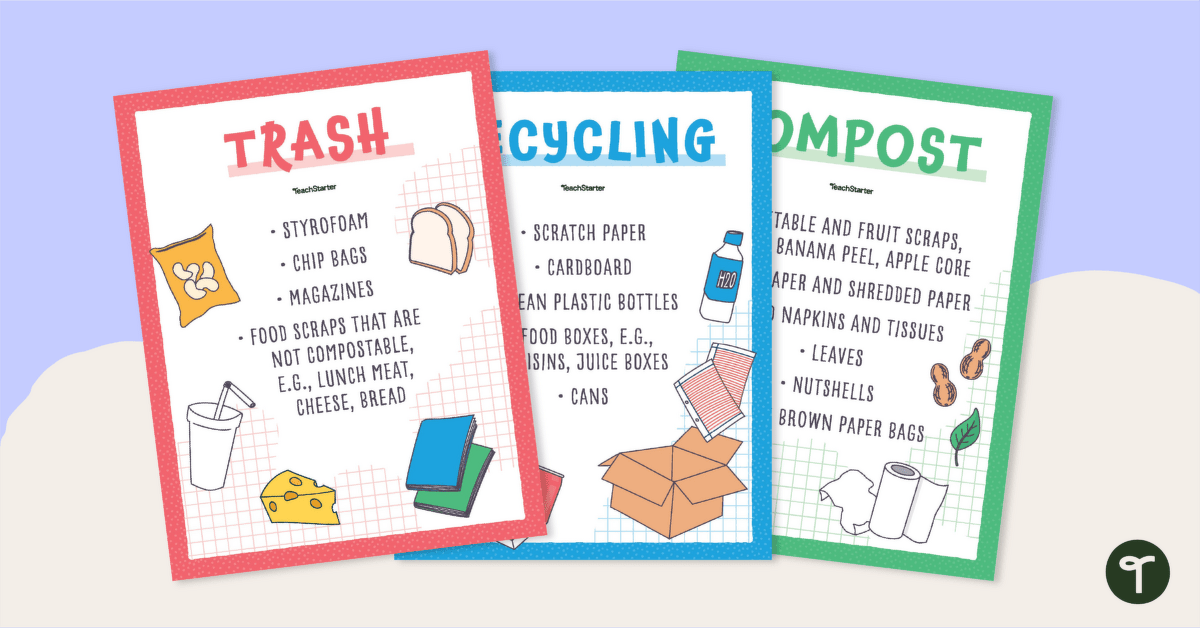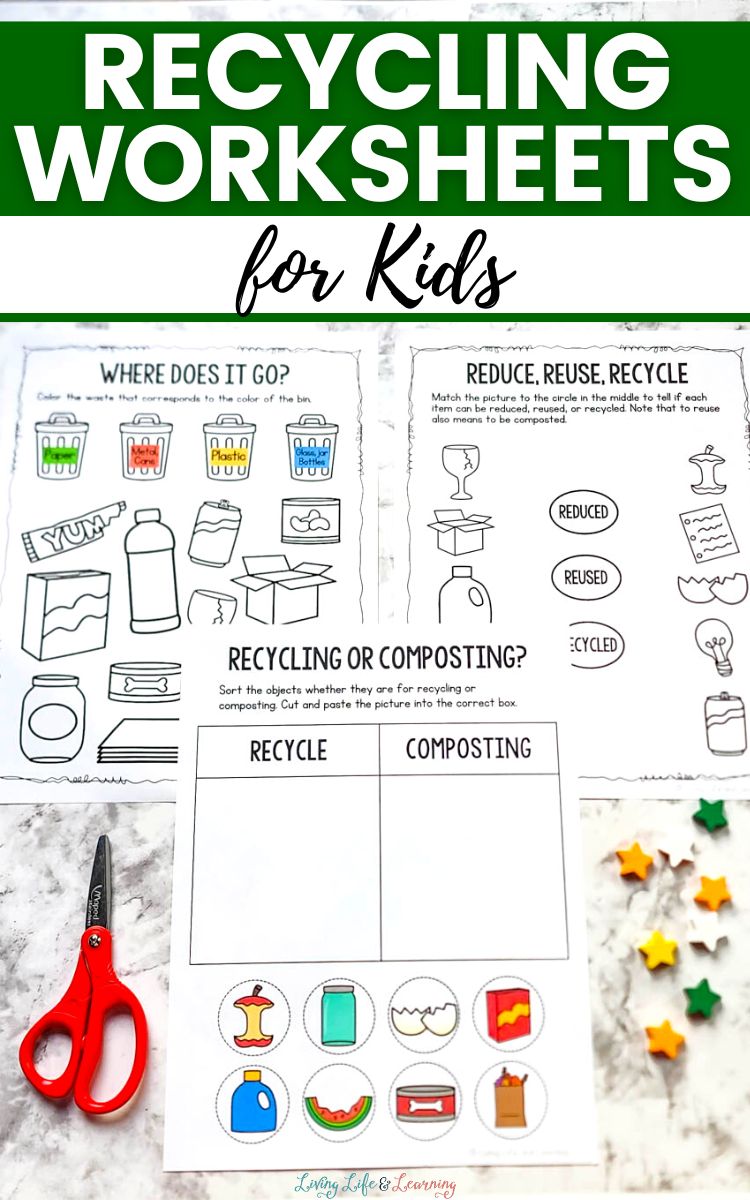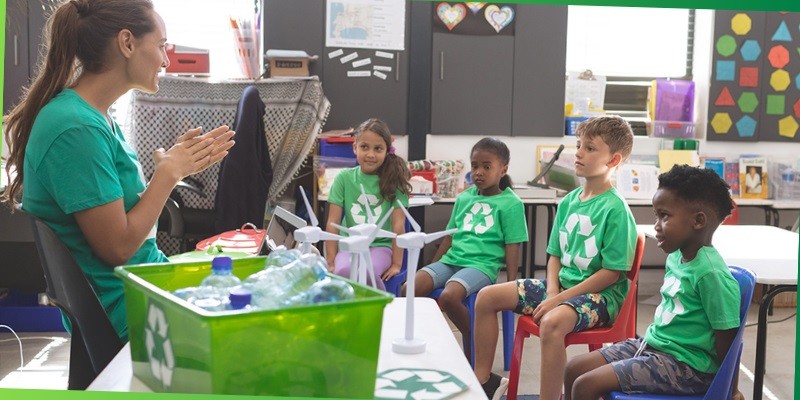Teaching kids about recycling and composting is vital. It helps them understand the environment and their role in protecting it.
Kids learn best by doing and seeing. When they understand recycling and composting, they can make better choices. This blog will guide you on teaching these concepts to your kids. It’s a fun and simple way to involve them in caring for our planet.
You’ll find easy tips and activities that make learning about recycling and composting enjoyable. Let’s get started on this green journey together!

Credit: freedomhomeschooling.com
Benefits Of Recycling And Composting
Teaching kids about recycling and composting helps them understand the importance of caring for the environment. Through hands-on activities, children learn how to reduce waste and create nutrient-rich soil. These practices encourage responsibility and a sense of achievement in young minds.
Teaching kids about recycling and composting is not just about protecting the environment. It’s about instilling values that will benefit them and the planet for years to come. Understanding the benefits can motivate both children and adults to take these practices seriously.
###
Environmental Impact
Recycling and composting help reduce waste in landfills. This cuts down on the harmful chemicals and greenhouse gases that are released into the air.
Kids can learn that recycling materials like plastic, paper, and glass means fewer natural resources are used. This helps preserve forests and oceans.
When children see the immediate effects of composting, like rich soil for the garden, they realize how their actions can positively impact the environment. You can show them your garden thriving with the help of compost, making the lesson tangible.
###
Health And Safety
Recycling and composting improve the quality of our air and water. Less waste means fewer pollutants, which leads to healthier communities.
Explain to kids how composting reduces the need for chemical fertilizers. These chemicals can be harmful if they seep into our water supplies.
Sharing stories about places affected by pollution can help kids understand the importance of these practices. Ask them how they feel about the idea of clean parks and playgrounds for everyone to enjoy.
By engaging children with practical examples and encouraging them to think about their role in the ecosystem, you can make recycling and composting a fun and meaningful part of their daily lives. How will you start incorporating these habits into your household routines?

Credit: www.teachstarter.com
Engaging Kids In Recycling
Teaching kids about recycling and composting can be fun and educational. Start with simple activities like sorting waste. Encourage them to compost food scraps to help the environment.
Teaching kids about recycling doesn’t have to be a chore. It can be a fun and educational experience that shapes their understanding of the environment. By making recycling activities enjoyable and interactive, you can instill lifelong habits in your children.
Fun Activities
Make recycling a game. Set up a sorting station with different bins for paper, plastic, and glass. Challenge your kids to see who can sort the most items correctly in a minute.
Create art projects from recyclable materials. Turn old cardboard boxes into castles, or use bottle caps to make colorful mosaics. These activities spark creativity while teaching the importance of reusing materials.
Plan a recycling scavenger hunt. Give your kids a list of items to find around the house or neighborhood. This not only keeps them engaged but also helps them recognize recyclable materials in their daily lives.
Educational Resources
Use books and videos to explain recycling concepts. Many children’s books are designed to teach environmental responsibility in an engaging way. Videos can visually demonstrate the recycling process, making it easier for kids to understand.
Visit a recycling center or composting facility. Seeing the recycling process in action can be a powerful learning experience. It shows kids how their efforts contribute to a larger system.
Involve your kids in community recycling programs. Participating in neighborhood clean-up events or local recycling drives can give them a sense of accomplishment and community spirit.
How do you make recycling fun for your kids? Share your creative ideas and help others make recycling an enjoyable family activity!
Introducing Composting To Children
Teaching kids about recycling and composting can be fun and educational. Start with simple activities like sorting waste. Show them how composting helps the environment.
Teaching kids about composting is a fantastic way to foster environmental awareness. It helps them understand the natural cycle of waste and its role in a healthier planet. Starting with simple concepts can make the process fun and engaging for young minds.
Simple Composting Methods
Begin with the basics. Explain that composting is the process of turning food scraps and yard waste into soil. Use a clear and simple language. Show them how vegetable peels, fruit scraps, and leaves can break down over time. Keep a small compost bin in the kitchen. Kids can add waste to it daily. This hands-on approach makes learning interactive.
Composting Projects
Create projects to spark interest. Build a compost pile in the backyard. Let kids collect organic waste and add it to the pile. Teach them to mix it regularly. Another fun project is a compost bottle. Use a clear plastic bottle. Layer it with soil, food scraps, and leaves. Watch the decomposition process through the bottle. This visual aid makes learning exciting.
Engage kids with art. Let them decorate compost bins. Make labels showing what can and cannot be composted. These projects make the learning process creative and enjoyable. Kids will love seeing their efforts turn into rich soil for the garden.
“`

Credit: www.livinglifeandlearning.com
Frequently Asked Questions
How To Explain Composting To Kids?
Composting turns food scraps and yard waste into nutrient-rich soil. It’s like recycling for plants. Kids can mix vegetable peels, leaves, and grass clippings in a bin. Over time, these break down into soil, which helps gardens grow.
How Do You Teach Little Kids About Recycling?
Teach little kids about recycling by using fun activities, like sorting games. Explain the importance of recycling. Show them how to recycle at home. Use stories or videos to illustrate concepts. Encourage them to participate and ask questions. Make recycling a regular habit.
How To Teach About Compost?
Teach composting by explaining its benefits, demonstrating the compost process, and showing what materials to use. Include hands-on activities.
How Is Composting A Form Of Recycling?
Composting recycles organic waste into nutrient-rich soil. It reduces landfill waste and enriches gardens. This process transforms food scraps and yard waste into valuable resources, promoting a sustainable environment.
What Is The Best Age To Teach Kids About Recycling?
Kids can start learning about recycling as early as age 3. Simple tasks like sorting can be introduced.
Conclusion
Teaching kids about recycling and composting can be fun and rewarding. Kids learn best through hands-on activities and simple explanations. Start small and build their understanding over time. Encourage them to ask questions and explore. Celebrate their efforts and make it a family project.
By doing this, you create lifelong habits that benefit the planet. Remember, every small step counts. Your guidance today shapes a greener future tomorrow. Let’s make recycling and composting a natural part of growing up.

